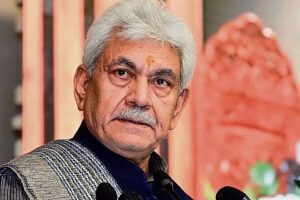State Councilor and Foreign Minister Wang Yi called on Southeast Asian countries on Monday to take the future of themselves and the region into their own hands to refrain from being used as chess pieces in major power rivalries.
In a policy speech at the Association of Southeast Asian Nations Secretariat in Jakarta, the Indonesian capital, Wang said that many regional countries, including ASEAN nations, were under pressure to take sides.
Noting that the strategic environment in the region is at risk of being reshaped by political factors, he said that China and ASEAN countries must work to insulate the region from geopolitical calculations and the trap of the law of the jungle.
Wang called on countries in the region to adhere to peaceful coexistence, saying that geopolitical conflicts and bloc confrontations should by no means be brought to Asia.
Regional countries are also unwilling to see sanctions, blockades and humanitarian crises happening here, he said, adding that differences should be peacefully resolved through dialogue and consultation.
China and ASEAN countries should correctly view each other’s development and enjoy the opportunities brought by development, secure a free and open global market, and promote integrated economic development.
Wang said that although globalization is suffering from temporary headwinds, it remains an irresistible trend and only inclusiveness and openness can bring win-win cooperation and benefits for all.
He stressed the importance of true regional cooperation that promotes unity among regional countries and is inclusive to those outside the region.
Fake regional cooperation excluding or targeting a certain country must be opposed, Wang said.
When asked about the United States’ attempt to expand its influence in the Asia-Pacific region, Wang referred to his bilateral meeting with US Secretary of State Antony Blinken on the sidelines of the G20 Foreign Ministers’ Meeting in Bali on Saturday.
Wang said he had suggested that China and the US discuss the establishment of rules for positive interactions and jointly uphold regionalism in the Asia-Pacific.
The core elements of such rules are to support the central role of ASEAN, uphold the existing regional cooperation framework, and respect each other’s legitimate rights and interests in the Asia-Pacific, instead of aiming to antagonize or contain the other side, he said.
The two countries should also play their role as responsible major countries to promote regional stability and development, and provide more public goods for regional countries, Wang added.
He said that it would be very beneficial if China and the US can achieve positive interactions in the Asia-Pacific, as it will not only make a positive contribution to China-US relations but also meet the general expectations of regional countries.
China is waiting to see the choice of the US side, he said.
Washington’s response will also show whether the US can abandon hegemonism, overcome the Cold War mentality and discard the logic of a zero-sum game with a view to truly playing a constructive role for peace and prosperity in the Asia-Pacific region, Wang added.











